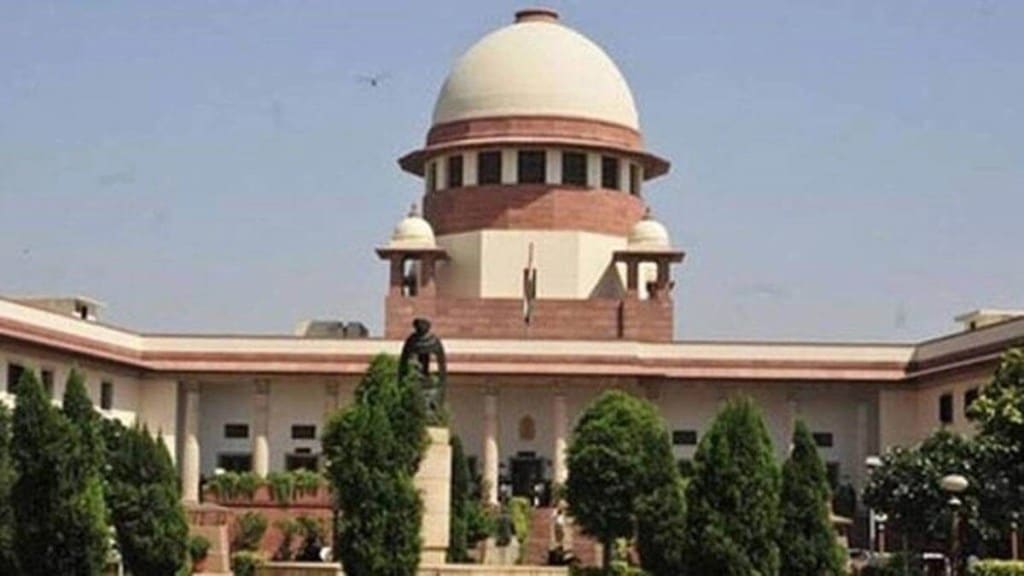The Supreme Court on Tuesday referred the petitions challenging the constitutional validity of sedition law to a five-judge Constitution bench and directed that they be placed before the Chief Justice of India for this.
“The submissions which have been urged on behalf of the petitioners would merit consideration by a bench of at least five judges of this court. We accordingly direct the Registry to place the papers before the Chief Justice so that an appropriate decision can be taken on the administrative side for the constitution of a bench of strength of at least five judges in the present case,” a three-judge bench said.
The bench, presided by Chief Justice of India D Y Chandrachud, said that a reference to a larger bench was needed as the provision was upheld by a 5-judge bench in the 1962 judgment Kedar Nath Singh v. State of Bihar. “Being a smaller bench, it may not be appropriate for it to doubt or overrule Kedar Nath,” the bench said, Live Law reported.
Also Read: Sedition law to be fully repealed in IPC overhaul: Amit Shah in Parliament
Pointing out that a new bill had been introduced in the Parliament to replace the IPC with the Bharatiya Nyaya Sanhita and that it had been sent to a standing committee, the Centre urged the court to defer the hearing in the matter till the Parliament finally decides on the Bill.
But the Supreme Court rejected the request, saying that it being a penal statute, will have only prospective application and, therefore, the fate of cases registered under Section 124A will have to be gone into, Live Law reported.
“Learned Attorney General for India R Venkataramani and Solicitor General Tushar Mehta have requested the court at this stage to defer considering whether a reference should be made having due regard to the fact that the Parliament is in the process of re-enacting the provisions of the penal code and the bill has has now been placed before a standing committee. We are not inclined to accept the request for deferring the constitutional challenge in these batch of matters for more than one reason,” said the bench.
The court also pointed out that in the Kedar Nath Singh case, where Section 124A was read down and upheld, the provision was tested only as against Article 19(1)(a) of the Constitution and “there was no challenge on the ground that section 124A violated Article 14 nor did the Constitution bench have occasion to consider the validity of the provision against a constitutional challenge on the basis of Article 14”.
Also Read: What is sedition law? Controversies and latest developments around Section 124A – EXPLAINED
However, the present batch of petitions, the Supreme Court pointed out, challenge the provision on the ground that it conflates the state with the government, that it is a pre-constitutional enactment and does not carry the same presumption of constitutionality as a law which was enacted after the Constitution was adopted, that it is necessary to evaluate the validity of section 124A based on the doctrines which have evolved subsequent to the decision in Kedar Nath Singh, particularly bearing on the ambit of Articles 14 and 21.

